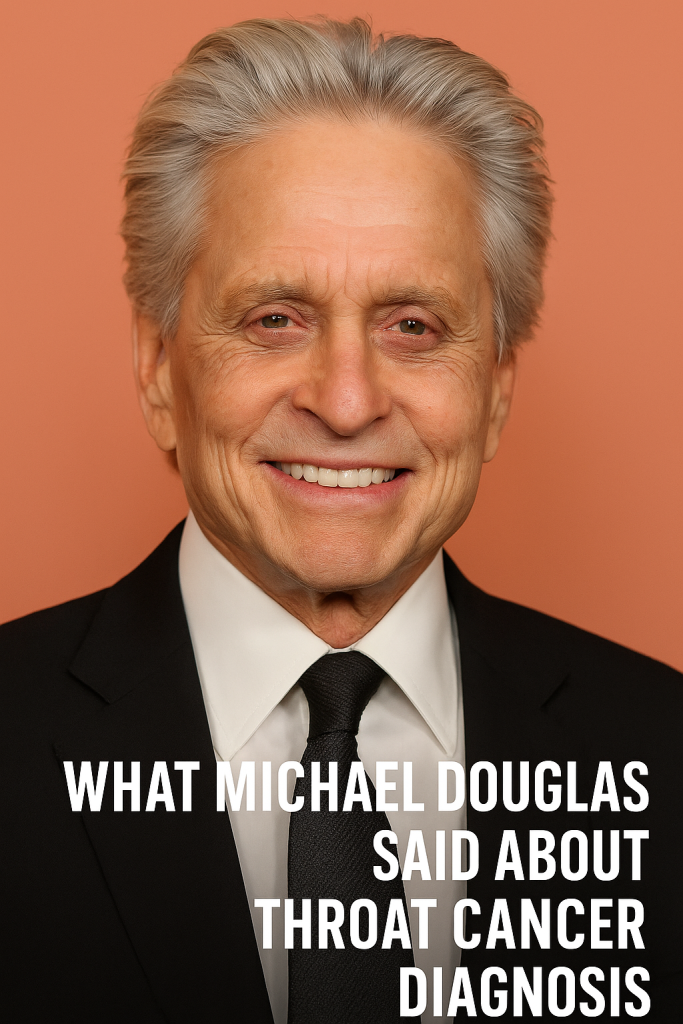In a revealing and candid conversation that has captivated audiences worldwide, renowned actor Michael Douglas has spoken openly about his throat cancer diagnosis at the age of 65, shedding light on the surprising cause behind his illness.
Back in 2010, Douglas was diagnosed with stage IV throat cancer, a life-altering event that challenged not only his health but also his perspective on the disease. What made his story especially notable was his public acknowledgment that the cancer was linked to human papillomavirus (HPV), which he attributed to oral sex—a revelation that helped demystify and destigmatize conversations about the disease.
Recently, in 2024, Douglas revisited his health journey in a detailed interview, reflecting on the shock of the diagnosis and the unexpected cause that initially caught him off guard. At 65, when most people face health scares related to aging, Douglas learned that his throat cancer was caused by HPV, a sexually transmitted infection, rather than traditional factors like smoking or excessive alcohol use. This disclosure placed much-needed attention on the connection between HPV and oropharyngeal cancers, which have been increasing in prevalence globally.
“When I first found out the source of my cancer, it was quite a shock,” Douglas shared. “It was an eye-opener about how important sexual health and awareness are, even beyond what we typically associate with cancer risks.”
The actor stressed that awareness and education about HPV are crucial in preventing HPV-related cancers, which often go unnoticed until advanced stages. Douglas’s openness has since contributed to a broader public dialogue encouraging vaccination and safe sexual practices.
Experts note that HPV is responsible for a significant number of throat cancer cases worldwide, particularly among middle-aged men. The virus can be transmitted through oral sex, and its link to throat cancer has been increasingly recognized by the medical community. Douglas’s frank discussion helped reduce the stigma associated with HPV and throat cancer, encouraging many to seek early screenings and vaccinations.
Michael Douglas’s journey from diagnosis to recovery was also marked by aggressive treatment, including chemotherapy and radiation, affirming the seriousness of his battle. However, his survival and willingness to discuss his experience openly have been a beacon of hope for many facing similar diagnoses.
In addition to raising awareness about HPV-related throat cancer, Douglas’s candidness underscores an important message: knowledge and prevention are key weapons in the fight against cancer. His story encourages individuals to have informed conversations with their healthcare providers about HPV risks, vaccinations, and regular screenings.
As Douglas continues his work in film and philanthropy, his advocacy around HPV-related cancer awareness stands out as a powerful example of turning a personal health crisis into impactful public education. His experience is a reminder that cancer can strike unexpectedly, but with openness and medical advancements, those affected can find support, treatment, and hope.



